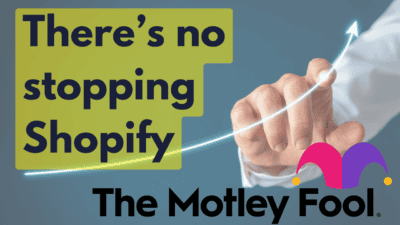With the onset of the COVID-19 pandemic, the Canada Revenue Agency (CRA) launched the Canada Emergency Response Benefit (CERB) in haste. The agency disbursed the payments without doing stringent background checks. It delayed the investigation to a later date and stated that there will be a penalty for fraudulent claims.
After seeing the $2,000 benefit come in so easily, many bad actors sprung up who deliberately defrauded the system.
Proposed CERB penalty
In June, Prime Minister Justin Trudeau proposed a draft bill to penalize these bad actors, but the bill did not receive support from another party. The draft bill proposed a penalty of up to $5,000, triple the amount of the CERB benefit fraudulently received, and up to six months in jail time.
Lack of support has left the CERB penalty in grey. But this doesn’t mean the CRA won’t penalize fraudsters. There could be some amendments to the bill.
You can save yourself from becoming a bad actor in the eyes of the CRA by avoiding the three CERB mistakes below.
Repay your CERB payments if you are not eligible
You are eligible for the CERB payments if you were working before March 15 and lost your working income because of COVID-19. The CRA released $2,000 in benefit payments to help you with your monthly groceries and other living expenses. Don’t apply for CERB
- If you earned more than $1,000 in that month;
- You started working and earning; or
- You are already receiving Employment Insurance (EI).
If you received the CERB payments from both the CRA and Service Canada, the CRA will adjust your future payments. If you received the CERB payment even when you are not eligible, you can repay it to the CRA. The agency has received around 190,000 CERB repayments as of June 3. It has also opened a Leads Program where you can report suspected CERB fraud. It is investigating over 1,300 leads as of June 10.
The CRA understands the difference between a mistake and a fraud. Hence, it is giving you a chance to correct your mistake. Assess your eligibility and repay any mistaken benefit, or the CRA will ask you to repay wrongly credited benefit.
Return to work if it is reasonable to do so
When Justin Trudeau extended the CERB by eight weeks, many Canadians took it as an incentive not to return to work. They denied job offers, and employers’ calls to return to work to continue receiving the benefit. You should return to work, resume self-employment, or take up a decent job offer if it is reasonable to do so.
The draft bill proposed a retroactive penalty of up to triple the amount of CERB improperly claimed by slacking work. But the government instead adopted a more gentle approach.
In July, the CRA added another clause requiring CERB claimants to prove that they are actively searching for jobs. If it finds out that you are slacking work to get the benefit, it will stop your CERB payments.
Be honest and transparent with the CRA
While the CRA is generous with the above two CERB mistakes, it might not be generous if the claimant gave false information or failed to disclose relevant facts that would determine his/her eligibility. Be honest with the CRA and disclose all information correctly to avoid any penalty the government decides in the future.
Earn your CERB income
Don’t be scared to apply for CERB. After all, it is your money you paid to the CRA as tax. The CRA is being stringent only to prevent fraudsters from misusing taxpayers’ money. While the CERB is temporary and taxable, you can earn your CERB that is permanent and tax-free.
Try to set aside around $500 from your $2,000 CERB payment every month in your Tax-Free Savings Account (TFSA). Invest this money in a high-growth stock like Enghouse System (TSX:ENGH), which rose over 50% since April.
Enghouse caters to four verticals: contact centres, telecom, logistics, and geographic information systems. It increases its revenue through acquisitions and organic growth. Its last few acquisitions of video-conferencing and video services boosted its revenue in the pandemic, as working from home became the new normal.
If you had invested $500 in Enghouse in April, your money would have increased to $750 by now.







